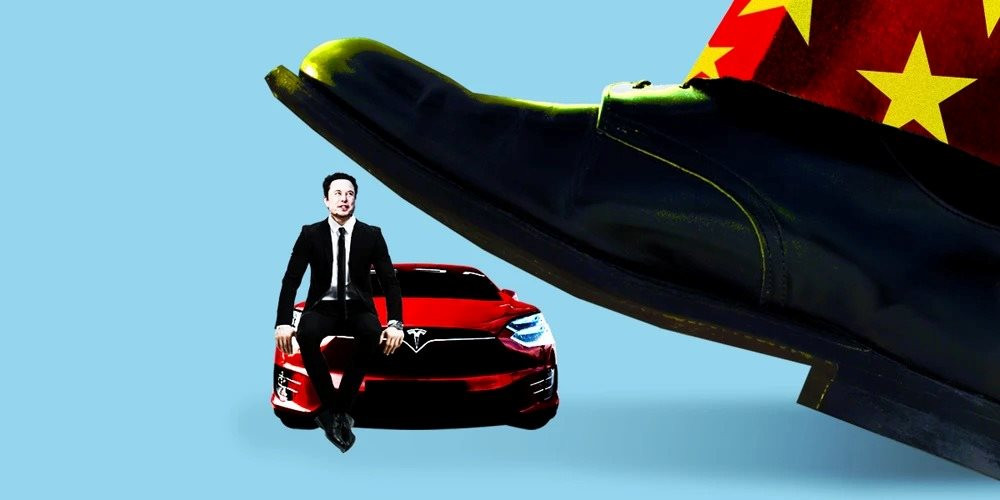
When asked about BYD in 2011, Tesla CEO Elon Musk simply laughed, saying, “Do you see their cars?” He chuckled to Bloomberg TV, emphasizing that BYD “doesn’t have great products” and “the technology isn’t very strong.”
Musk’s reaction was representative of many car manufacturers at the time. They did not believe that Chinese car manufacturers would pose a threat to them.
A lot has changed in 13 years. BYD surpassed Tesla in 2023 to become the world’s best-selling electric vehicle manufacturer. For every 3 electric cars sold, 1 is produced by BYD, up from 15% in 2020.
Instead of continuing to mock, Musk is sounding the alarm about the threat from Chinese car manufacturers. At an investment conference in January, he said Chinese electric cars would “destroy” many American car manufacturers if allowed into the US. US car companies also recognize that they have to make electric cars cheaper as soon as possible to avoid being eliminated.
While companies like Tesla, Ford, and GM are releasing high-end electric models, Chinese brands are offering a wide range of options at various price points, including affordable electric cars, premium electric cars, and even electric cars just enough to get from point A to point B. And while American car manufacturers are still trying to win over consumers in their own country, China has plans to overcome trade barriers to sell these cars worldwide, including the US.
“The notion that Chinese technology and design is not of high quality like traditional car manufacturers – that should be dispelled immediately,” said Tu Le, founder of Sino Auto Insights, a consultancy focused on the Chinese electric vehicle market. “Right now, the automotive titans are wanting for competitive products. There’s a void there. If Chinese electric cars are allowed into the US this year or next year, those titans will feel the pain.”
Consumers are witnessing an unprecedented shock to the global automotive order since Japan entered the US market in the 1970s. The rise of Chinese electric cars has created a new battlefield, forcing companies to expand technological capabilities and policy makers to rethink decades-long trade policy frameworks. What is being threatened is nothing less than a $104 billion US industry, equivalent to Angola’s GDP and accompanied by 3 million jobs. “It’s become a global game. But a lot of people haven’t been paying attention,” said Tu Le.
In 2023, 1 million electric vehicles were sold for the first time in the US, up from 918,000 in 2022. However, there are forecasts that the growth in sales in the coming years may decline. To address this, car companies realize they must attract customers with cheaper models.
Earlier this month, Ford CEO Jim Farley said the company is fully focused on developing a cheaper model. Tesla has been promising a cheap model for many years.
While Americans are just beginning to try to satisfy different customer segments, Chinese brands have produced every imaginable type of electric vehicle. If you want a $10,000 electric car, try the BYD Seagull. If you want a luxurious SUV that can float on water, there’s the BYD U8 Premium Edition. If you want something even more luxurious, Chery has introduced a sports car called the iCar, priced from $21,800 to $58,000.
Of course, there are certain challenges to this strategy. China has too many electric vehicles and too many manufacturers. They need to expand into new markets, and the “key” is that they can do it faster than the rest of the world can catch up.
Chinese car manufacturers currently face slowing domestic demand. China aims to reach a capacity of 5 million vehicles (mostly electric) by 2025. Meanwhile, domestic sales are projected to reach only 3.7 million vehicles.
The excess production needs somewhere – or some places – to go. The best option is the West – first Europe, where current trade barriers are easier, and eventually the US. That’s why brands like BYD, Chery, and SAIC are all in talks with the Mexican government to expand operations there. They need a foothold in North America to start conquering the US market.
Electric cars produced in China do not qualify for the $7,500 tax credit under the EV Incentive Program. However, they would qualify if they were produced in Mexico and meet specific requirements for battery supply.
No country wants to lose its auto industry. In Brussels and Washington, the rise of Chinese cars has become a challenging topic of conversation.












